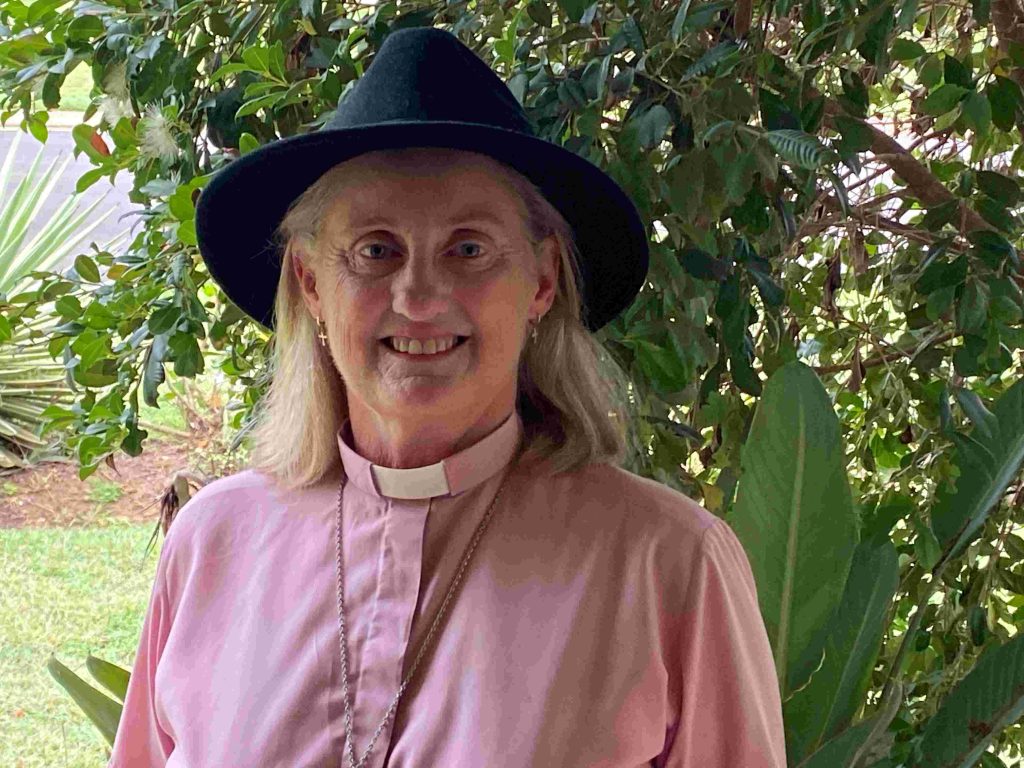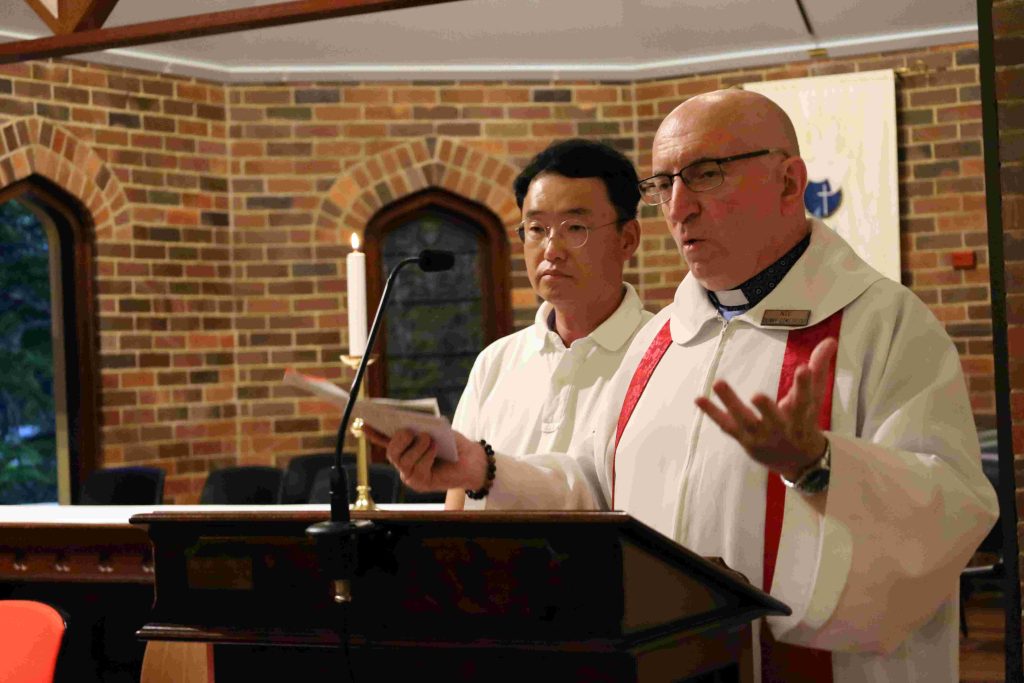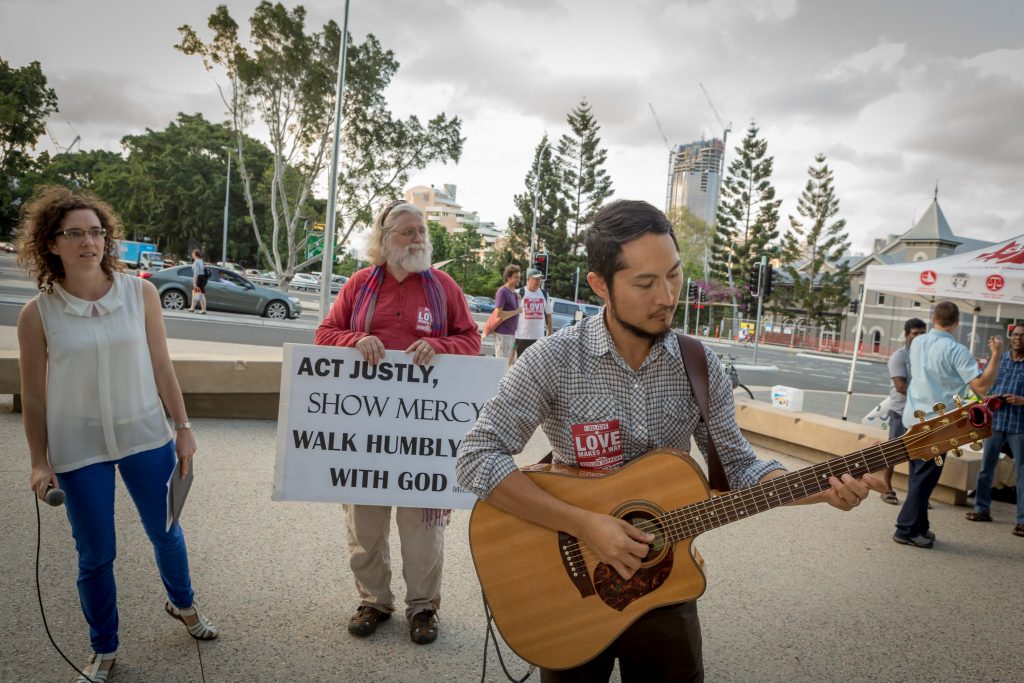What is your favourite Gospel of Matthew passage and why? | Robert King, Loretta Tyler-Moss, Nic Denny-Dimitriou and Peter Branjerdporn
Reflections
Four members of our Diocesan community tell us about their favourite passage from the Gospel of Matthew, including Robert King, The Rev’d Loretta Tyler-Moss, The Rev’d Nic Denny-Dimitriou and Peter Branjerdporn

Robert King – Warden, St John’s Cathedral
My favourite passage in Matthew is:
“When Jesus had entered Capernaum, a centurion came to him, asking for help. ‘Lord,’ he said, ‘my servant lies at home paralyzed, suffering terribly.’ Jesus said to him, ‘Shall I come and heal him?’ The centurion replied, ‘Lord, I do not deserve to have you come under my roof. But just say the word, and my servant will be healed. For I myself am a man under authority, with soldiers under me. I tell this one, ‘Go,’ and he goes; and that one, ‘Come,’ and he comes. I say to my servant, ‘Do this,’ and he does it.’ When Jesus heard this, he was amazed…Then Jesus said to the centurion, ‘Go! Let it be done just as you believed it would.’ And his servant was healed at that moment.” (Matthew 8.5-9 and 13)
Advertisement
This passage means a lot to me because, like me, the centurion was an outsider. The centurion was not considered one of God’s people – he was seen as unworthy of approaching God or connecting with God. I, too, have been instructed that I am unworthy, an outsider – one who is unable, because of who I am, to meet the requirements of approaching God.
In this passage, Jesus reveals to us that God does not look for the ritual or religious worthies, the insiders – the ones who meet all the ritual or doctrinal qualifications. Jesus didn’t tell the Centurion: “change who you are before I listen to you”.
Instead, Jesus seeks out those who will put their trust in him – regardless of who they are. God is willing to hear, respond and touch their lives.
This passage confirms for me that Jesus doesn’t look at me and go, “you don’t have the ‘right’ beliefs or the ‘traditional’ interpretation of doctrine.” Rather Jesus says, “open yourself to me and trust me, and I will step into your life and restore the parts of you that are hurting or unhealthy.”

“When the congregation and I are loving God, each other and our neighbours, we open the door and hold space for God to move in marvellous and inviting ways” (The Rev’d Loretta Tyler-Moss)
The Rev’d Loretta Tyler-Moss – Assistant Priest, The Parish of Brisbane Valley
The Message version of this verse best illustrates why I have selected Matthew 6.1-2:
“Be especially careful when you are trying to be good so that you don’t make a performance out of it. It might be good theatre, but God who made you won’t be applauding. When you do something for someone else, don’t call attention to yourself.
Identifying this verse as my favourite Matthean verse in an anglican focus seems somewhat incongruous. But as a new priest, the reminder to refrain from performing for my congregation’s approval or acceptance is sage and practical advice.
Advertisement
The verse is also relevant as the leader of a small congregation that is often searching for that special something that will “bring them in”. We look for the “perfect” ministry or social activity and practise our welcome like the folk of fictional town Radiator Springs in the 2006 animated movie, Cars. It is tempting to focus on our performance and our “ratings” rather than on the Gospel.
This verse prompts me to turn consistently to Jesus’ two great Commandments. When the congregation and I are loving God, each other and our neighbours, we open the door and hold space for God to move in marvellous and inviting ways.
This verse tells us much about Jesus’ humility and authenticity. So instead of saying the “show must go on”, we will keep working to keep His ministry alive.

“That I am fully known, including my needs, is a profound mystery and privilege” (The Rev’d Nic Denny-Dimitriou, 2023)
The Rev’d Nic Denny-Dimitriou, Priest-in-Charge, The Parish of Chelmer-Graceville
Matthew’s account of Jesus’ words on prayer reveal wonderful things about Jesus and the Father of whom he speaks, and about how we communicate.
Paraphrasing Matthew 6.5-8: “When you pray, do not be like those who love to be seen by others…go into your room…pray to your Father who is unseen…do not keep on babbling like those who think they will be heard for their many words…your Father knows what you need before you ask.”
God wonderfully knows our thoughts, emotions and needs before we express them, and without grandstanding or presenting our “good side”. Glitz and showing off are disconnected from our authentic self. Whilst God loves us as we are in our mix of human wonder and brokenness, the Father seems most keen to connect with our authentic self – which is why we still express ourselves to God like a child expressing needs to a loving parent.
It is a relief to not need to babble, accepting that a few words suffice. In grief or trauma, pouring out many words and much emotion towards God is an appropriate catharsis, but in everyday connection, I think that less is more.
That I am fully known, including my needs, is a profound mystery and privilege. “No babbling required” suggests no awkwardness in the relationship, like the oft-quoted point about being comfortable enough with someone that moments of silence are welcomed without the need to fill them.

Peter Branjerdporn, with St Andrew’s, South Brisbane parishioner Dave Andrews, at a multi-faith evening at the Lady Cilento Children’s Hospital vigil for Baby Asha in 2016
Peter Branjerdporn – Justice Unit, General Manager’s Office
I like Matthew 25.31-46, the passage about The Judgement of the Nations, albeit not because it is popular or fun. I heard that many people avoid giving sermons on this passage because it can be controversial for a number of reasons. When I was young I thought that this parable was pointing to “Judgment Day” and our two possible eternal destinies. I also found it shocking that there was no mention of being saved by Grace through faith in Christ, regardless of how good or bad we have been throughout our lives.
As my faith matured and I read a little more widely I came to believe that this parable was told to deliberately shock the audience out of their comfort zone. Canada-based theologian Brad Jersak suggests that Jesus uses provocative images here to bypass our defences and assumptions. Rather than being about the end times, I think this passage wants us to pay attention to our actions in this present moment and calls us to repent.
As people of privilege, we may sometimes use grace as an excuse to be complacent towards the least of these. Jesus confronts us with a parable that questions both our individual and collective complicity in national and global systems that perpetuate poverty, oppression and suffering.
This passage reminds me that Jesus of Nazareth’s ministry was to comfort the disturbed and to disturb the comfortable. Some days we are goats, and some days we are sheep. May Jesus, the Living Word of God, continue to disrupt us, leading us to repent and orientate our hearts towards him more each day.





